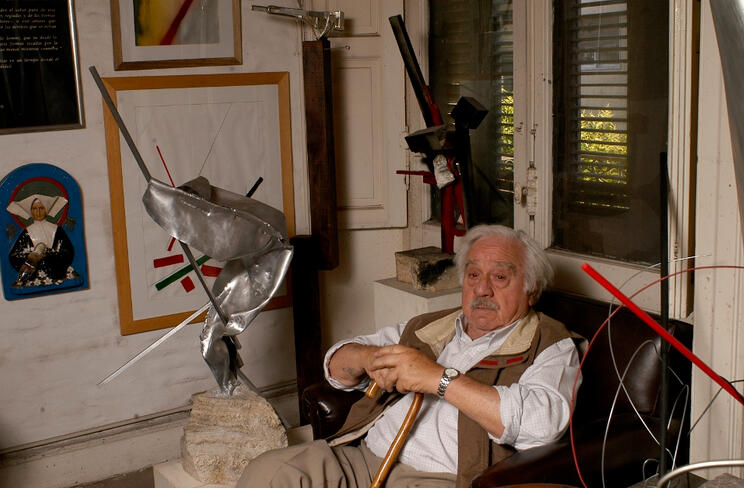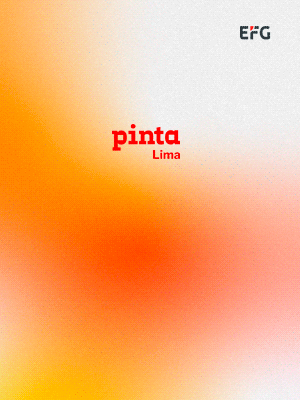IN MEMORIAM
Farewell to the Argentine artist Enio Iommi (1926-2013)
The Argentine artist Enio Iommi (b. Rosario, Santa Fe Province, 1926) has passed away. He was born to be a sculptor, and he absorbed art in the bosom of his Rosario family.

From his father, Sergio Girola, he inherited the craft to forge classic forms with a chisel; from his mother, María Iommi, a precursor who created the first capeline hat in the country, he inherited fantasy and freedom; from his brother Claudio Girola, his non-conformist and rebellious nature; and from his uncle, Godofredo Iommi, his poetry.
When he was only seventeen years old, he participated in the gatherings at the Bar Rubí in Plaza Once, which he shared with the young painters and poets who published their work in Arturo magazine, devoted to abstract art. He used linoleum as support for his first concrete painting, and he was a member of the Arte Concreto-Invención group, together with his brother Claudo Girola, Hlito, Raúl and Tomás Maldonado, Lidy Pradi, Rafael and Raúl Lozza, Kosice, and several other artists. The group had its first exhibition at the Salón Peuser on Florida Street; it caused quite a stir and generated a strong reaction both from the critics and the public. Unable to understand the new aesthetics, visitors drew graffiti on the works, which led to the closing of the exhibit.
Interested in experimenting with space itself, Iommi abandoned painting and created his first concrete sculpture, based on a series of abstract and geometric reliefs. He always respected his mission as an artist, and as such he reflected the feelings that characterized the different epochs. To this end, he relied on diverse materials. He used wood and cobblestones, brutally tied together with wire, during the time of the dictatorship. He employed “poor” materials – twisted wire, rusty cans, frayed rags, broken bottles and torn tires – in inhuman assemblages which explored this new dramatic space.
With the return to democracy, his artistic adventure led him along a totally ironic path. First, it was the turn of elements of everyday use, such as a coffee pot or a pan, which he cut open in order to show the essential space and exhibit them in a different setting, placing them out of context.
Enio Iommi was characterized by his vitality and his huge passion for art, which he shared with his innumerable pupils. He was a non-conformist thinker, ready to run risks for his ideals at all times.





